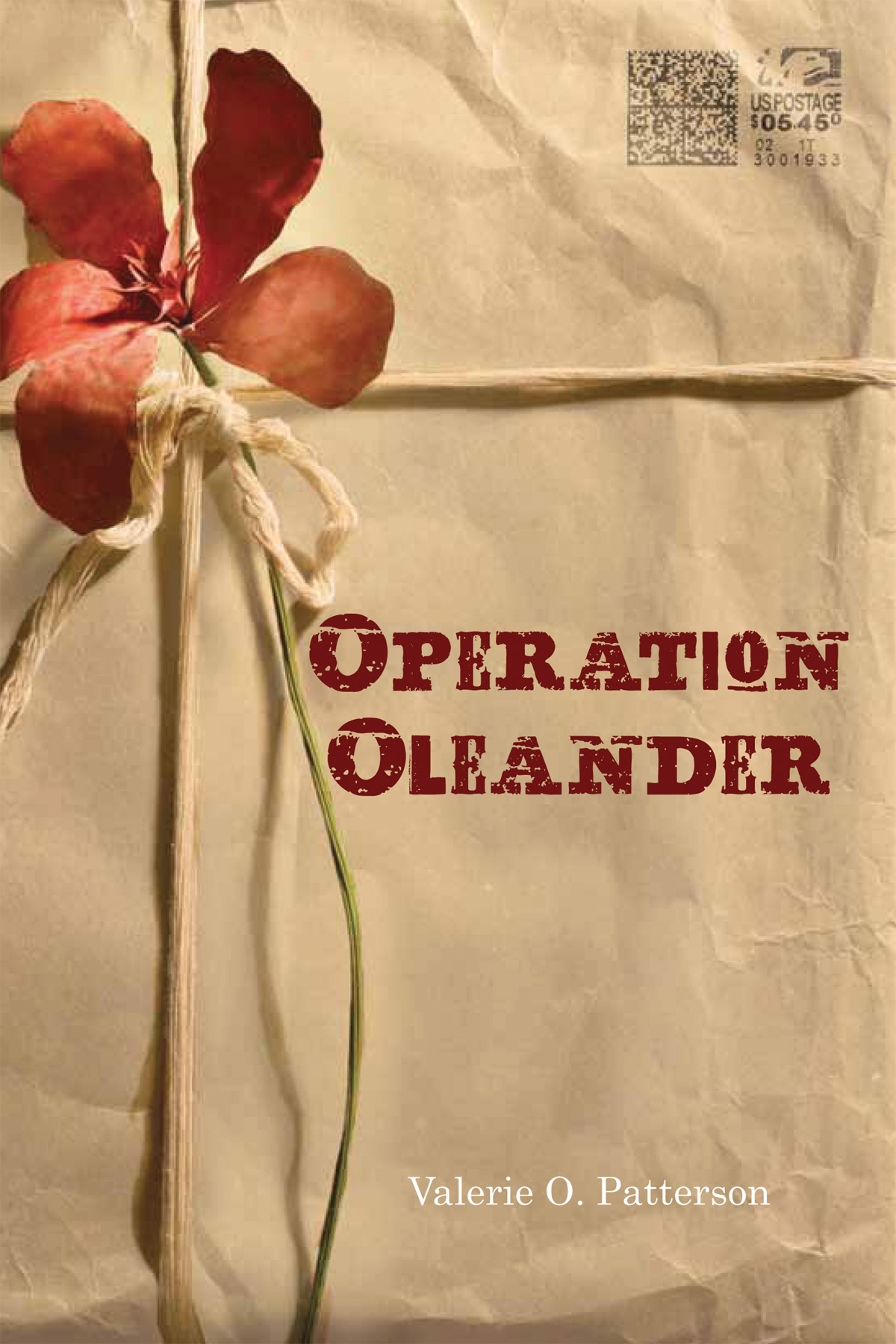
Sometimes good intentions have unintended consequences. That’s the premise behind Valerie Patterson’s “Operation Oleander.”
In the book, ninth-grader Jess Westmark is raising money for a girls orphanage in Kabul. Jess’ father is deployed there, and he delivers the supplies to the orphans. But one day a delivery goes wrong and a car bomb explodes leaving Jess’ father severely injured and Jess’ best friend’s mother and a number of children dead. Blame quickly turns to Jess’ charity; with many people saying it turned the orphanage into a military target for the Taliban.
Though what plays out in “Operation Oleander” is not based on any one event, Valerie says there are many articles about charitable giving and its sometimes-unintended consequences. News articles about protests at military funerals also seeped into the story.
The actual inspiration for the book came from reading another novel: “Quaking” by Kathy Erksine. The book is about a foster child who ends up living with members of the pacifist Society of Friends.
“After reading the book, I wondered about a different situation,” Valerie told Cracking the Cover. “What is the impact of war on the child of a military family? How does that shape his or her views of the world, the war? And what happens if the unthinkable occurs?”
It was a difficult start for Valerie. Rather than starting a novel with “what if,” she prefers when the character just comes to her. “I’m more of a ‘discoverer’ than a ‘plotter,’” she explained.
As a result, she struggled with the book. “It took me several drafts and a meandering course to finally begin to narrow in on the heart of the story,” she said. “This is a story about connections with her family and friends and the larger world. Then I started over in first person. That’s when I heard Jess’s voice.”
Setting the overall scene and getting it right was important to the feel of “Operation Oleander.” Valerie grew up near Navy base in Florida, so she had a picture of what an Army post in her fictional part of Florida may look like. She also visited another Navy base while writing the book, which helped with depicting the physical layout of a military installation.
 “My dad was a veteran, and I went to school with military dependents,” Valerie said. “I felt that I had an understanding of some of what their lives were like. More recently, I read letters from soldiers to their families, and blogs about military life.”
“My dad was a veteran, and I went to school with military dependents,” Valerie said. “I felt that I had an understanding of some of what their lives were like. More recently, I read letters from soldiers to their families, and blogs about military life.”
To make certain she had no major blunders, Valerie asked a military family member to read the book through for errors. “She read not just for factual mistakes but nuances or anything that rang untrue,” Valerie said. “My factual mistake, easily remedied, was that, while the Navy has ‘bases,’ the Army has ‘posts.’ What encouraged me was the feedback that I had the nuances correct of what living on base was like, and what differences might be perceived between the children of officers and the children of enlisted personnel. “
While “Operation Oleander” may not be a “happy” book, it is a “hopeful” book, Valerie says. “We all endure difficult situations in our lives,” she said. “The key is how do we approach the difficult situations? How do we find our way? How do we love one another?”
Valerie says she hates conflict and while writing the book, she struggled to find its heart and to understand Jess. “In fiction, though, a book without conflict is dead,” the author said. “Nothing happens that the reader cares about. So, the saying goes, we have to put our characters in difficult situations, and then we have to make things worse. And worse. Only then can we see what they are made of, and what we might be made of, too.”
In one of the drafts of “Operation Oleander,” Valerie says she skipped over the funeral scene completely. “It was too hard to write, too painful, so I tried to simply avoid it and start the new chapter in a different place,” she explained. “Of course, I had to go back and write that scene. Jess had to endure that situation, which was compounded by the anti-war protestors who chose the funeral as their protest venue. As filmmaker Akira Kuroswa says, ‘To be an artist means never to avert your eyes.’ You have to be prepared to go to the dark place and write about it.”
Though the things Jess faces in “Operation Oleander” may not be run of the mill, Valerie hopes that young readers will be able to identify with her character. “Even though their lives may be very different, if they can imagine what it must be like to have a parent deployed or to face the unthinkable, they can become more empathetic, more thoughtful,” she said. “Sometimes, too, fiction puts a voice to fears we have and illuminates strengths that we don’t know we have, but we can believe we do because we see characters find internal strengths and overcome obstacles.”
*Read the complete transcript of Cracking the Cover’s interview with Valerie Patterson.
